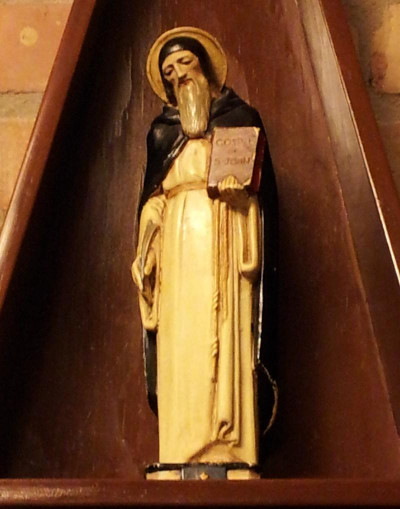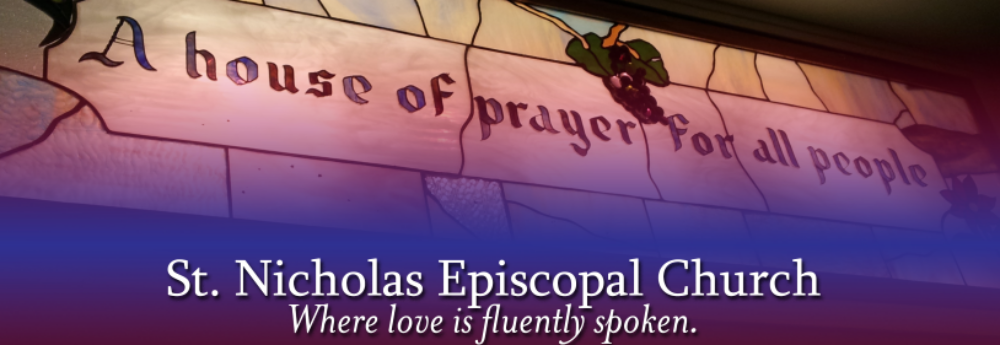The Feast of St Bede the Venerable is celebrated May 25th

Bede the Venerable
Priest, and Monk of Jarrow, 735
At the age of seven, Bede’s parents brought him to the nearby monastery at Jarrow (near Durham in northeast England) for his education. There, as he later wrote, “spending all the remaining time of my life. . . I wholly applied myself to the study of Scripture, and amidst the observance of regular discipline, and the daily care of singing in the church, I always took delight in learning, teaching, and writing.”
Bede was ordained deacon at nineteen, and presbyter at thirty. He died on the eve of the Ascension while dictating a vernacular translation of the Gospel according to John. About 1020 his body was removed to Durham, and placed in the Galilee, the Lady Chapel at the west end of the Cathedral nave.
Bede was the greatest scholar of his time in the Western Church. He wrote commentaries on the Scriptures based on patristic interpretations. His treatise on chronology was standard for a long time. He also wrote on orthography, poetic meter, and especially on history. His most famous work, The Ecclesiastical History of England, written in Latin, remains the primary source for the period 597 to 731, when Anglo-Saxon culture developed and Christianity triumphed. In this work, Bede was clearly ahead of his time. He consulted many documents, carefully evaluated their reliability, and cited his sources. His interpretations were balanced and judicious. He also wrote the History of the Abbots (of Wearmouth and Jarrow), and a notable biography of Cuthbert, both in prose and verse.
His character shines through his work-an exemplary monk, an ardent Christian, devoted scholar, and a man of pure and winsome manners. He received the unusual title of Venerable more than a century after his death. According to one legend, the monk writing the inscription for his tomb was at a loss for a word to fill out the couplet:
Hac sunt in fossa Bedae-blank-ossa
(This grave contains the- blank-Bede’s remains)
That night an angel filled in the blank: Venerabilis.
Heavenly Father, you called your servant Bede, while still a child, to devote his life to your service in the disciplines of religion and scholarship: Grant that as he labored in the Spirit to bring the riches of your truth to his generation, so we, in our various vocations, may strive to make you known in all the world; through Jesus Christ our Lord, who lives and reigns with you and the Holy Spirit, one God, for ever and ever. Amen. —from Lesser Feasts and Fasts
St Bede is one of our patrons, along with St Nicholas, St Mary Magdalene, St Patrick, and the Holy Innocents.
